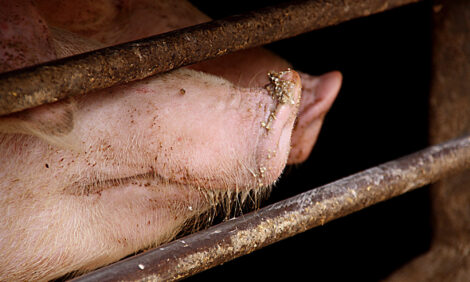



International Conference Focuses on ‘Greening’ CAP
UK - Scotland’s leading food and farming organisation, National Farmers Union (NFU) Scotland has welcomed guests from across the EU’s northern Member States to discuss ways in which the next Common Agricultural Policy (CAP) can meet higher environmental standards and still deliver on food production and rural economic growth.The UK’s Secretary of State for the Environment, Food and Rural Affairs, Caroline Spelman, Scottish Cabinet Secretary for Rural Affairs, Richard Lochhead and George Lyon MEP who are all at the heart of the EU CAP discussions joined delegates from the UK, Denmark, Germany, Holland and Ireland at the Moredun Research Institute on the outskirts of Edinburgh.
Over two days, the conference will explore the EU Commission’s proposals for so-called ‘greening’ of the CAP and try to identify ways in which these countries – who share many land-type, weather and farming characteristics – can work together to produce effective yet practical alternative policies to the deeply unpopular proposals in current draft text.
The EU Commission has proposed that 30 per cent of all direct support to farmers should be conditional on their meeting three basic requirements including creating ‘Ecological Focus Areas’, ‘three-crop’ rotation and obligations for permanent grassland. In essence, this relates to the area of land which farmers can keep under active production, the kinds of crops they can grow over a certain area and keeping land under grass for a prescribed period of time.
The rigidity of these proposals are seen as prohibitive to farming and food production and many experts believe that the EU Commission’s environmental ambitions could be met in a way which still upholds food production and is viable from a budgetary perspective.
NFU Scotland’s President, Nigel Miller, who is hosting the event said: "Member States recognise that greening will be a central component of the new CAP and that it is essential that we meet greening requirements if we are to retain a sufficient budget under Pillar I.
"Farmers are concerned, however, about the detail of the EU Commission’s proposals and the effect they could have on food and drink production and the competitiveness of EU agriculture as a whole.
"This negativity is apparent across the whole of the EU’s 27 member states which is why we have brought together some of our northern European colleagues – with whom we share certain land, weather and farming characteristics – to determine how we can shape the EU Commission’s proposals in a way that works for farming, the environment, the EU budget and public expectation.
"We shall be quantifying what the impact would be if the proposals were left unchanged: we need to balance how Pillar I, which provides direct support to farm businesses, can drive sustainable food production while meeting environmental needs."






